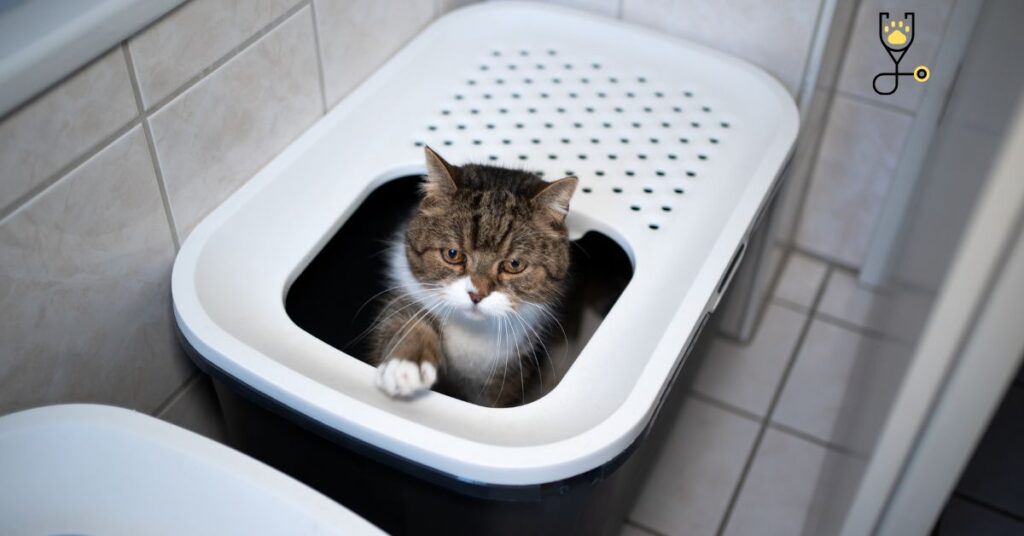We all know at least one cat lover. They’re the ones always talking about how wonderful their cats are and how much they love them. But do we really understand cats? Unfortunately, many myths circulate about these beloved creatures, which can lead to misunderstandings between owners and their pets. In this blog post, we’ll dispel twelve of the most common cat behavior myths. So read on – you may learn something new!
1. Myth: Cats always land on their feet
While it’s true that cats usually land on their feet, this doesn’t mean they’re invincible! In fact, falls from great heights can result in serious injury or even death. It’s also important to remember that you should never try to catch a falling cat – simply provide a soft surface, like a blanket or pillow, and let the cat land on its own.

2. Myth: Cats are loners
Contrary to popular belief, cats actually do enjoy spending time with their owners! In fact, many research studies have found that cats bond closely with humans in order to receive affection and attention. So if you have a cat, be sure to spend plenty of quality time with it each day – your kitty will love you for it!
3. Myth: You can’t train a cat
While many people believe that cats are not capable of “training” like dogs are, this is simply not true! Cats can be trained to use a litter box, come when called, and even sit on command. And best of all, training cats is actually pretty fun – so why not give it a try?
4. Myth: Cats don’t respond to verbal cues
As we’ve mentioned above, cats do respond well to verbal communication such as calling their names or talking in soft tones to them. So if your cat hasn’t been responding to your verbal cues, try changing your tone – you may be surprised at how well your cat responds!

5. Myth: Cats can’t learn tricks
While cats may not learn tricks like dogs do (like fetching a ball or rolling over), they are still capable of learning other types of behaviors. For example, many cats enjoy playing games that involve using their paws to interact with certain objects, like a toy mouse or laser pointer. So if you want to teach your cat some cool tricks, start by teaching it a few easy actions – your kitty will love it!
6. Myth: All white cats are deaf
Contrary to popular belief, not all white cats are deaf – in fact, many purebreds have hearing that is perfectly fine. However, white cats with blue or odd-colored eyes do have a higher risk of being deaf, which may be due to specific genetic mutations. But regardless of whether your cat is hearing impaired or not, it’s important to always speak loud and clear when interacting with your feline friend!
7. Myth: Cats only use litter boxes for their bathroom needs
While it’s true that cats typically only use the litter box for their bathroom needs, there are plenty of other reasons why they might choose the litter box over another area in the house. For example, some cats like to hide in the litter box because they feel safe and comfortable there – so if you want to keep your kitty off the couch or out of the trash can, consider providing it with its own litter box!

8. Myth: Cats are only nocturnal
While it’s true that cats can be more active at night, many felines actually enjoy daytime naps and tend to sleep for about 12-16 hours each day. However, if your cat tends to be awake during the early morning or evening hours, this doesn’t mean you should necessarily try to keep it from moving around at night. After all, a little nighttime activity is perfectly normal for an animal who has been bred over thousands of years to hunt in the dark.
9. Myth: Cats hate water
Contrary to popular belief, many cats actually enjoy playing around in the water and even drinking it on occasion! So if you have a cat who seems to hate getting wet, don’t worry – it’s just not a fan of baths or showers. However, if you have a cat who seems to love water, it may be an excellent swimmer and even enjoy playing in the pool with you!
10. Myth: Cats are finicky eaters
While some cats can be picky when it comes to food, most cats actually enjoy eating a variety of different foods and flavors. So instead of trying to feed your cat only one type of food or brand, consider letting it try out new types on occasion. You may be surprised at how much your kitty enjoys trying out different kinds! And if all else fails and your cat simply refuses to eat certain foods, don’t worry – there are plenty of high-quality cat foods out there that you can try instead.

11. Myth: Cats must always be declawed
While many people believe that it’s cruel to declaw a cat, this is actually not true! In fact, if your cat is scratching up your house or furniture, there are many non-invasive ways to prevent this from happening. For example, you may consider investing in some durable pet toys and scratching posts for your kitty – these will help keep it entertained while also letting it scratch on the right things. And if all else fails and your cat simply refuses to stop scratching up your home, you may even want to consider declawing as a last resort.
12. Myth: Cats are independent and aloof
While it’s true that cats can be quite independent, this does not mean they’re totally uninterested in interacting with their humans! In fact, many domesticated felines actually love spending time with their owners and will go out of their way to get your attention. So if you have a cat, don’t be afraid to interact with it on a regular basis – whether you’re petting it or playing a fun game together, your kitty is sure to enjoy every minute!

Conclusion
Whether your cat is young or old, it’s important to always treat it with love and respect. After all, cats are incredibly intelligent and emotional creatures who deserve to be treated well by their humans! So if you have a feline friend of your own, consider following these tips to help ensure that it enjoys its life in your home. And if you’re thinking about getting a cat as a pet, be sure to do plenty of research beforehand so that you can give your new kitty the best possible start!
Frequently Asked Questions
Q: What is the best way to keep my cat from scratching up my furniture?
A: There are many great ways to keep your cat from scratching up your furniture, including investing in durable pet toys and scratching posts, as well as using deterrent sprays or training pads. You may also want to consider declawing your cat as a last resort if other methods aren’t working. Whatever you do, just be sure to always put your kitty’s safety and happiness first!
Q: How can I make sure my cat stays healthy and happy?
A: There are many great ways to keep your cat healthy and happy, including making sure it gets plenty of exercises, feeding it a high-quality diet, and providing it with all the love and attention it deserves. You may also want to consider taking your kitty in for regular vet check-ups to help ensure that there aren’t any underlying health issues. With just a bit of effort, you can help keep your feline friend feeling great!
Q: What should I do if my cat seems sad or depressed?
A: If you think your cat seems sad or depressed, the first step is to take it in for a thorough vet check-up to rule out any underlying health issues. You may also want to consider spending more time with your kitty and engaging it in playful activities, such as playing with cat toys or going for walks outside. And if you’re concerned about its behavior, don’t be afraid to talk to your vet or a professional animal behaviorist for advice. With a bit of effort, you can help cheer up your feline friend in no time!
Q: How can I make sure my cat stays safe?
A: To help keep your cat safe, there are many great things you can do, including making sure it always wears an ID tag with your contact information on it and has been spayed or neutered. Additionally, be sure to always keep your cat indoors, especially if it tends to roam around in the neighborhood. And finally, consider investing in a good quality cat carrier so that you can safely transport your kitty when needed. With these tips and plenty of love, you can help ensure the safety and happiness of your feline friend!
Q: What should I do if my cat is acting aggressively or displaying other unwanted behaviors?
A: If your cat is acting aggressively or displaying other unwanted behaviors, the first step is to take it in for a thorough vet check-up to rule out any underlying health issues. You may also want to consider speaking with a professional animal behaviorist for advice on how to correct these behaviors. With some time, love, and patience, you can help ensure that your kitty behaves well both inside and outside of the home!







